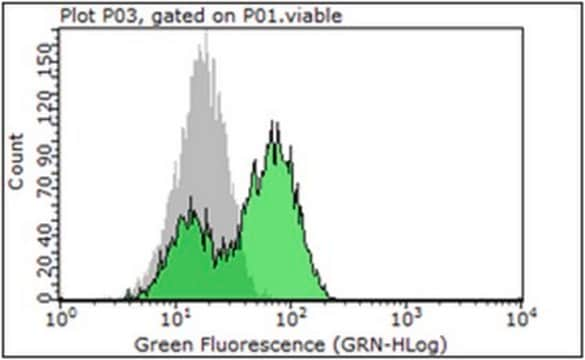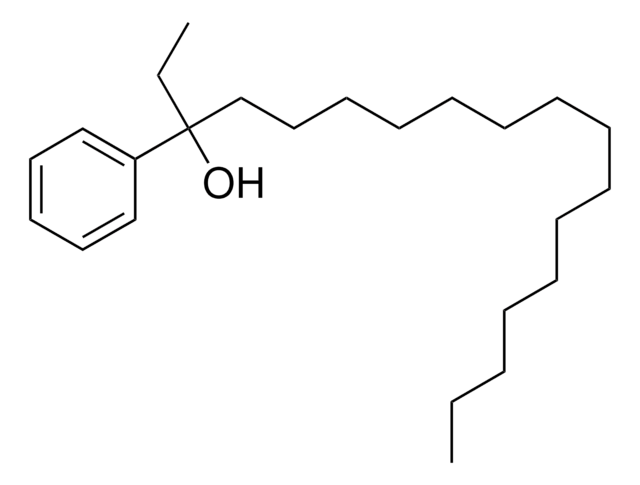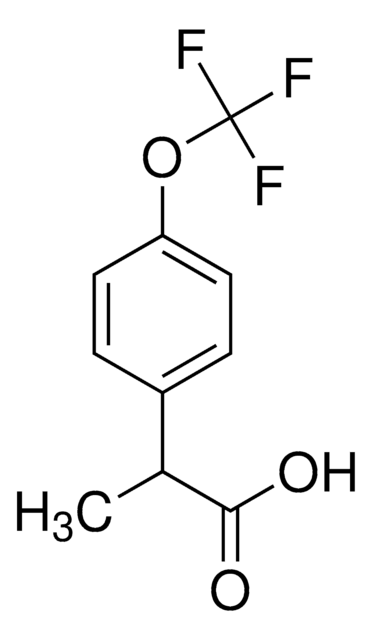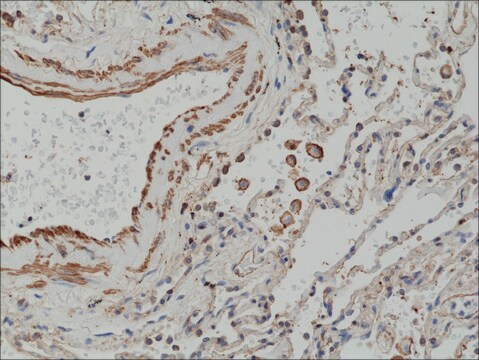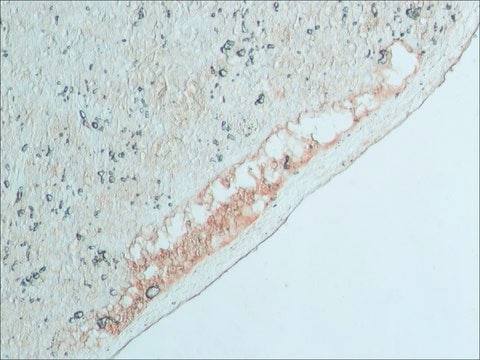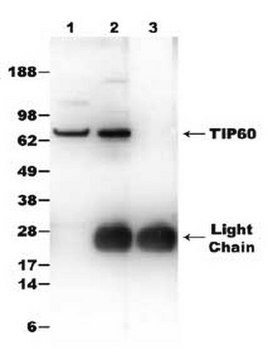MABS1320
Anti-Serpin B13 Antibody, clone B29
clone B29, from mouse
About This Item
Produits recommandés
Source biologique
mouse
Niveau de qualité
Forme d'anticorps
purified antibody
Type de produit anticorps
primary antibodies
Clone
B29, monoclonal
Espèces réactives
human, mouse
Conditionnement
antibody small pack of 25 μL
Technique(s)
immunofluorescence: suitable
western blot: suitable
Isotype
IgG2bκ
Numéro d'accès NCBI
Numéro d'accès UniProt
Conditions d'expédition
ambient
Modification post-traductionnelle de la cible
unmodified
Informations sur le gène
human ... SERPINB13(5275)
Description générale
Spécificité
Immunogène
Application
Western Blotting Analysis: 3 ug/mL from a representative lot detected Serpin B13 in mouse serpin/HEK293 cell lysates (Courtesy of Dr. Jan Czyzyk, M.D., University of Rochester Medical Center, NY).
Western Blotting Analysis: A representative lot detected Serpin B13 in Western Blotting applications (Baldzizhar, R., et. al. (2012). J Biol Chem. 288(3):1612-9; Czyzyk, J., et. al. (2012). J Immunol. 188(12):6319-27).
Affects Function Analysis: A representative lot detected Serpin B13 in Affects Function applications (Baldzizhar, R., et. al. (2012). J Biol Chem. 288(3):1612-9).
Signaling
Qualité
Isotyping Analysis: The identity of this monoclonal antibody is confirmed by isotyping test to be mouse IgG1 .
Description de la cible
Forme physique
Stockage et stabilité
Autres remarques
Clause de non-responsabilité
Vous ne trouvez pas le bon produit ?
Essayez notre Outil de sélection de produits.
Certificats d'analyse (COA)
Recherchez un Certificats d'analyse (COA) en saisissant le numéro de lot du produit. Les numéros de lot figurent sur l'étiquette du produit après les mots "Lot" ou "Batch".
Déjà en possession de ce produit ?
Retrouvez la documentation relative aux produits que vous avez récemment achetés dans la Bibliothèque de documents.
Notre équipe de scientifiques dispose d'une expérience dans tous les secteurs de la recherche, notamment en sciences de la vie, science des matériaux, synthèse chimique, chromatographie, analyse et dans de nombreux autres domaines..
Contacter notre Service technique